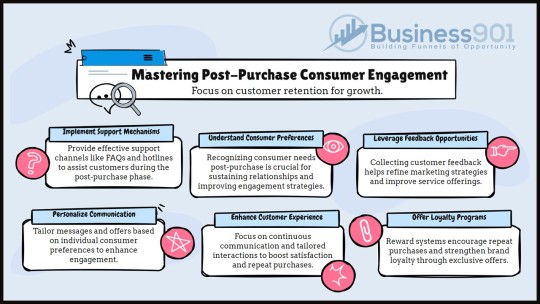#value-based pricing
Explore tagged Tumblr posts
Text

Step-by-Step Guide to Selling Digital Products with Ease
The digital economy is booming, and selling digital products—like eBooks, courses, templates, or printables—has never been more accessible. With low startup costs and limitless scalability, it’s an ideal venture for creators and entrepreneurs. Here’s how to start your journey effortlessly:
1. Identify Your Niche & Audience
Begin by pinpointing a niche you’re passionate about and that has demand. Research communities on social media, forums, or platforms like Reddit to understand pain points. For example, if you’re skilled at graphic design, consider offering Canva templates for small businesses. Narrowing your focus helps you stand out.
2. Validate Your Idea
Before investing time, validate demand. Use surveys, polls, or pre-sale offers to gauge interest. Share a concept on Instagram or LinkedIn and ask followers if they’d buy it. Tools like Google Forms or Gumroad’s pre-order feature can simplify this step.
3. Create Your Product
Focus on quality and usability. Use tools like Canva for design, Teachable for courses, or Adobe Audition for audio guides. Keep it simple—start with one product (e.g., a PDF workbook) before expanding. Ensure it’s professionally presented and solves a specific problem.
4. Choose a User-Friendly Platform
Select a platform that handles hosting and sales. Options like Gumroad, Ko-fi, or Etsy are beginner-friendly. For more control, use Shopify or WordPress with WooCommerce. Prioritize platforms with built-in marketing tools and analytics.
5. Set Up Payments & Pricing
Integrate secure payment gateways like Stripe or PayPal. Price your product strategically: research competitors, consider value-based pricing (e.g., $29 for a time-saving template bundle), or offer tiered options (basic vs. premium).
6. Launch & Market Smartly
Build anticipation before launching. Share snippets on social media, collaborate with micro-influencers, or offer limited-time discounts. Use email lists (start with free lead magnets) and SEO-friendly product descriptions to drive organic traffic.
7. Prioritize Customer Support
Automate delivery using platforms like SendOwl to avoid manual work. Create a FAQ section and respond promptly to queries. Positive reviews boost credibility, so encourage feedback with follow-up emails.
8. Analyze & Scale
Track sales and customer behavior with analytics tools. Identify top-performing marketing channels and double down. Expand your offerings based on demand—turn a popular eBook into a video course, or bundle products for upsells.
Final Thoughts
Selling digital products is a rewarding way to monetize your skills. By starting small, validating ideas, and leveraging the right tools, you can build a sustainable online business with minimal friction. Ready to launch? Your audience is waiting!
Take the first step today—create, share, and grow. The digital world is yours to conquer.
(Word count: 500)
This guide balances actionable steps with encouragement, ensuring readers feel empowered to start their digital product journey without overwhelm. Each section is concise, with practical examples to inspire immediate action.
#explore#digital marketing#digital product#selling#Sell digital products#Digital product creation#Online business ideas#Passive income strategies#Niche research#Audience validation#Low startup costs#Digital product platforms (e.g.#Gumroad#Etsy#Shopify)#Value-based pricing#Email list building#Social media marketing#SEO-friendly content#Customer support automation
2 notes
·
View notes
Text
Pursuing Available Category Entry Points
To effectively pursue category entry points, businesses must embrace Credibility, Competitiveness, and Commonality as foundational pillars. Organizations can remain agile and informed in a fast-changing market landscape by leveraging Adaptive Planning, Action Research, and Fractional Marketing Services. Building trust through credibility and shared values fosters stronger connections with audiences, while competitive differentiation ensures you stay ahead of rivals.
Together, these strategies empower businesses to make smarter decisions and seize opportunities with precision. By aligning these elements, you can create a sustainable framework for growth that meets current demands and anticipates future challenges with confidence. https://business901.com/blog1/pursuing-available-category-entry-points/

#customer expectations#Customer Experience#customer feedback#Customer Value#Delivering Value Propositions#Fractional CMO#Fractional Marketing Director#Managing Customer Value#Market-Value Pricing#Sales Inquiry#Value Branding#Value ladder#Value Laddering#Value Model#Value modeling#Value proposition#Value-Based Pricing
0 notes
Text
Value-Based Pricing to Reach Full Market Potential
Discover how value-based pricing can unlock your business's full market potential. Learn strategies to maximize profits and enhance customer satisfaction. to know more read out our latest article -https://7sagespricing.com/news/value-based-pricing-to-reach-full-market-potential
0 notes
Note
You're an artist looking to cash in, but you look down on those in closed species communities doing the same? Sounds like you're not the sharpest tool in the shed, huh?
My guy you're literally just selling NFTS, get over yourself.
#axel blabs#u are producing specific pieces of artwork in limited amounts of placing a value on those artistic items to declare their value#this value can fluxugate based on market price but remainds that persons indinvidual property#i don't care if its ocs or crypto THIS IS THE SAME SORT OF PROCESS#I GET MONEY TO DRAW PEOPLE MAKING OUT WITH FICTIONAL CHARACTERS AND YOU LEECH OFF OF PPLS CREATIVITY WE ARE NOT THE SAME
9 notes
·
View notes
Text





This new Junker Queen statue is apparently 16 inches tall and weighs 26 pounds… and it’s $1k 💀
#it’s GORGEOUS but good GOD the price#overwatch#overwatch 2#junker queen#odessa stone#the omnic corpses on the base are a disturbing touch#god if this was half the price I might consider it#but a thousand dollar statue for a tanking IP that’s def not gonna increase in value years from now? can’t do it#just make normal action figures again Blizzard gdi
50 notes
·
View notes
Text

honestly stunned riot charged $50 (probably not including shipping) for this LOL this the kinda thing you could buy in a store that sells crystals and candles for like $12 ... insane
#i saw the price when someone posted it in the tags and i was like . holy shit .#things are so mf expensive these days#can not believe they sold the REMAKE of silent hill 2 for $70#ive never seen a game's base price be $70#i remember when mario games were like $35 and that was too pricey for my mom to buy me any#i get theyre charging extra bc of the Sentimental Value bc its from the show or whatever#but still its outrageous how much companies are expecting people to pay#arcane s2
2 notes
·
View notes
Text
After a little digging I did find that they had a funeral for me. And that’s also where they sold all my old proxies. I found the receipts for all of them and they sold all my things very, very cheaply.
#ic#Whatever I’m dead.#I spent so much money on those stupid fucking things though that I’m a little annoyed.#At least look up the value of the mods rather than just totaling up base price.#You’ll get more money that way but I guess they would have been harder to sell.
4 notes
·
View notes
Text

holy fuck I love how petty and aggressive academics are. imagine talking to your colleague and being like ‘yeah actually I think your work delegitimizes our entire field and is so wildly ineffective it would sterilize an entire country’s economy if you put it into practice bc it’s just that fucking stupid. kys.’ like go girl go!!!
#I was reading a paper on the economics of our pharmaceutical industry and. it’s so fucking dumb.#they suggested pricing based on the benefits patients stand to gain which has to be the most idiotic shit I’ve ever heard in my life???#‘paradox of value’ I’m sorry you let the capitalist brain worms get you so bad you forgot that money isn’t actually real.#get well soon you utter tar pit of humanity <3#anyways. ‘doomed to sterility and inactivity’ is SOOOO funny to me like damn what did they do to you bro….
3 notes
·
View notes
Text
Im revamping my commissions at the moment but I feel like doing star wars only?? I'd be down to do sw ocs too...
I dont wanna price them too high so they can be affordable but :(
#i don't know the value of my own art#i dont time how long it takes to finish a piece because i take a lot of breaks/get dostracted easily so i can't really determine#a good base price#open your eyes for the next faivsz
2 notes
·
View notes
Text
About ten, fifteen years ago I wrote a story about a guy living in a Capitalist dystopia. His walls, furniture, and tableware are all covered in smart displays. Basically animated wallpaper. It's sold as being able to turn your room or objects into anything - A nice forest view, outer space, a fantasy realm... but the companies that run this stuff keep sneaking ads in.
It gets so bad he's always being woken up by adverts that offer insomnia cures and better bedding that play when he tries to sleep.
So he buys the ad-free tier, and it's great... for a few months. And then he starts getting adverts from 'premium partners'. So he goes up a level... and the same thing happens.
So he jailbreaks his wallpaper and sends all the ad servers to 0.0.0.0 and voila... he can sleep.
Until this SWAT team blows his door off and drag him off to jail. The Ad companies are suing him for loss of revenue for the products he' notionally have bought if he'd watched their adverts, based on some weird 'The average consumer buys X products with an average value of Y' calculation.
The judge is like 'well I dun wanna annoy the sponsors' so he RICO's this guy's house and possessions and sends him to jail.
... which is a nice relaxed non-volent offender jail for the corporately disenfranchised. But because these people have no money... there's no ads and now he's happy because the only place he's free... is in prison.
Which at the time was a bit much and now it's like: Called it.
Elon's suing companies for not advertising because he's losing revenue. He's also cranking the price of Ad Free Twitter. Disney and Amazon play adverts on their paid service when services used to be free because of the adverts... and now you have to pay to watch the adverts or go up a couple of tiers.
And google's going around freaking out about ad-blockers.
The original story was lost. However, I have started re-writing it. The first part is here - If there's enough interest, I'll keep going.
89K notes
·
View notes
Text

The post-purchase stage is a crucial phase in the customer journey that begins once a consumer purchases. This stage is not merely the end of a transaction but the start of a new relationship between the brand and the consumer. It involves continuous engagement and communication to enhance the customer experience and foster customer loyalty. By focusing on this phase, businesses can ensure they are not just acquiring customers but retaining them, which is vital for long-term success.
Article: https://business901.com/blog1/exploring-consumer-preferences-during-the-post-purchase-stage/
#customer expectations#Customer Experience#customer feedback#Customer Value#Delivering Value Propositions#Managing Customer Value#Market-Value Pricing#Sales Inquiry#Value Branding#Value ladder#Value Laddering#Value Model#Value modeling#Value proposition#Value-Based Pricing
0 notes
Text
no matter how much i do it, the process of buying plane tickets gives me a headache/makes me want to throw up every time. like first off why does it cost so much. why does the cost fluctuate every time i refresh the page. why does it need to completely refresh with the slowest clunkiest search page every time i want to alter a filter or something. if i pick your cheap fare for my departing flight and then a one-tier-up fare for my return flight, why are those fares "not compatible". why are you forcing me to upgrade the first cheap flight. how's that legal? what if I just didn't make it one trip, what if I bought the cheap ticket as a one-way trip then booked a second "one way" trip with the return flight i wanted?? would that work, and are you literally just scamming me out of money for no reason?? or would i go to the trouble of trying to get the two tickets one at a time and then see that for some inexplicable reason, each individual ticket has mysteriously gone up in price thus making them more expensive than if i had given into your 'upgrade' scam the first time? mostly i hate how goddamn annoying it is to even go thru the clunky process of CHECKING when or why it seems to cost more if i set it up differently. WHY IS IT LIKE THIS??? (I know the reason is like, 'greed', but it's so annoying, so frustrating, and always feels like you're getting ripped off and/or paying a lot for a very inconvenient process)!!!
#and yet i moved a flight-distance away from my family...#knowing this is the case#idk on one hand i'm like... air travel is crazy so i get why it SHOULD be costly. you're flying! thru the air!!!!!#but it just feels stressful when it feels like you COULD be getting a better deal if you just know where to look/what settings to check/etc#and it is also annoying when you feel like you are potentially paying more not for the actual service but for no real reason!#when the price arbitrarily changes based on when u refresh or what else you clicked in your search#thats infuriating!#is it crazy to want things to cost a set amount based on their cost to create/value in the marketplace and for that price to like#be clearly viewable and not changing by the minute?#am i INSANE to expect that??????#d
1 note
·
View note
Text
Exploring the Market Potential of JKUAT’s Watermelon Wine and Other Fruit Products
The Jomo Kenyatta University of Agriculture and Technology (JKUAT) in Kenya, which has been researching the production of wine from fruits such as cactuses, bananas and pineapples, will sharpen its focus on the commercialisation of its existing watermelon wine in 2025. In addition to its watermelon wine, JKUAT’s Food Technology Centre has been developing products such as yoghurts, fruit and…
#agro-processing in Kenya#food waste solutions#fruit preservation#fruit wines in Kenya#fruit-based wine#innovative beverages#JKUAT#JKUAT Food Technology Centre#JKUAT research#Kenyan agriculture innovations#Kenyan agro-technology#Kenyan wine industry#post-harvest losses#tropical fruit wines#value addition in agriculture#watermelon wine#watermelon wine alcohol content#watermelon wine commercialization#watermelon wine retail price#wine production in Kenya
0 notes
Text
I am absolutely begging Americans to please, please stop calling everything east of California and west of new york the midwest. Its a whole fucking continent.
And i know, i know ha ha, your better than anyone in those places simply by virtue of where you live, im happy for you, stay away from chicago it’s very cold and youd hate it.
#also dont fucking move to chicago#i got friends who want to be homeowners#chicago is NOT having a moment#we are the same as weve always been#i see what happened to austin#to portland#to seattle#bunch of asshole with more money than sense#comin in driving up the housing prices#instating HOAs and public policy based around preserving property values#fuck off with this well meaning liberal shit#it only ever means well for the people with money
0 notes
Note
people acting like Taylor has been colluding to up ticket prices is ridiculous but I also keep seeing a lot of people that are weirdly conflating resale prices with fv prices for artists. and I just feel like if you have that issue you should not be adding yourself to the discussion
Yep. She had dynamic pricing off and even her floor tix are much lower priced than smaller artist and most of her peers. And based on what people are willing to pay she could set her prices much higher. A reason the eras resell is so crazy is bc they are actually priced below market value
And yeah Every time I see non fan calling her greedy of smth they always use outrageous resell prices that people actually buy ( and she doesn’t make any money beyond original sale) .
Eras tickets do appear to be priced for the local market. But the main reason tix are so much cheaper in Europe is bc there’s laws that don’t allow resale.
#Taylor also created a whole verfied fan thing for rep when it still worked#areas are also cheaper than stadium in terms of production needs#based on what people are willing to pay she could definitely set her prices much higher but isn’t#resale is crazy bc tix are actually priced below market value
1 note
·
View note
Text
Amazon annihilates Alexa privacy settings, turns on continuous, nonconsensual audio uploading

I'm on a 20+ city book tour for my new novel PICKS AND SHOVELS. Catch me in SAN DIEGO at MYSTERIOUS GALAXY on Mar 24, and in CHICAGO with PETER SAGAL on Apr 2. More tour dates here.

Even by Amazon standards, this is extraordinarily sleazy: starting March 28, each Amazon Echo device will cease processing audio on-device and instead upload all the audio it captures to Amazon's cloud for processing, even if you have previously opted out of cloud-based processing:
https://arstechnica.com/gadgets/2025/03/everything-you-say-to-your-echo-will-be-sent-to-amazon-starting-on-march-28/
It's easy to flap your hands at this bit of thievery and say, "surveillance capitalists gonna surveillance capitalism," which would confine this fuckery to the realm of ideology (that is, "Amazon is ripping you off because they have bad ideas"). But that would be wrong. What's going on here is a material phenomenon, grounded in specific policy choices and by unpacking the material basis for this absolutely unforgivable move, we can understand how we got here – and where we should go next.
Start with Amazon's excuse for destroying your privacy: they want to do AI processing on the audio Alexa captures, and that is too computationally intensive for on-device processing. But that only raises another question: why does Amazon want to do this AI processing, even for customers who are happy with their Echo as-is, at the risk of infuriating and alienating millions of customers?
For Big Tech companies, AI is part of a "growth story" – a narrative about how these companies that have already saturated their markets will still continue to grow. It's hard to overstate how dominant Amazon is: they are the leading cloud provider, the most important retailer, and the majority of US households already subscribe to Prime. This may sound like a good place to be, but for Amazon, it's actually very dangerous.
Amazon has a sky-high price/earnings ratio – about triple the ratio of other retailers, like Target. That scorching P/E ratio reflects a belief by investors that Amazon will continue growing. Companies with very high p/e ratios have an unbeatable advantage relative to mature competitors – they can buy things with their stock, rather than paying cash for them. If Amazon wants to hire a key person, or acquire a key company, it can pad its offer with its extremely high-value, growing stock. Being able to buy things with stock instead of money is a powerful advantage, because money is scarce and exogenous (Amazon must acquire money from someone else, like a customer), while new Amazon stock can be conjured into existence by typing zeroes into a spreadsheet:
https://pluralistic.net/2025/03/06/privacy-last/#exceptionally-american
But the downside here is that every growth stock eventually stops growing. For Amazon to double its US Prime subscriber base, it will have to establish a breeding program to produce tens of millions of new Americans, raising them to maturity, getting them gainful employment, and then getting them to sign up for Prime. Almost by definition, a dominant firm ceases to be a growing firm, and lives with the constant threat of a stock revaluation as investors belief in future growth crumbles and they punch the "sell" button, hoping to liquidate their now-overvalued stock ahead of everyone else.
For Big Tech companies, a growth story isn't an ideological commitment to cancer-like continuous expansion. It's a practical, material phenomenon, driven by the need to maintain investor confidence that there are still worlds for the company to conquer.
That's where "AI" comes in. The hype around AI serves an important material need for tech companies. By lumping an incoherent set of poorly understood technologies together into a hot buzzword, tech companies can bamboozle investors into thinking that there's plenty of growth in their future.
OK, so that's the material need that this asshole tactic satisfies. Next, let's look at the technical dimension of this rug-pull.
How is it possible for Amazon to modify your Echo after you bought it? After all, you own your Echo. It is your property. Every first year law student learns this 18th century definition of property, from Sir William Blackstone:
That sole and despotic dominion which one man claims and exercises over the external things of the world, in total exclusion of the right of any other individual in the universe.
If the Echo is your property, how come Amazon gets to break it? Because we passed a law that lets them. Section 1201 of 1998's Digital Millennium Copyright Act makes it a felony to "bypass an access control" for a copyrighted work:
https://pluralistic.net/2024/05/24/record-scratch/#autoenshittification
That means that once Amazon reaches over the air to stir up the guts of your Echo, no one is allowed to give you a tool that will let you get inside your Echo and change the software back. Sure, it's your property, but exercising sole and despotic dominion over it requires breaking the digital lock that controls access to the firmware, and that's a felony punishable by a five-year prison sentence and a $500,000 fine for a first offense.
The Echo is an internet-connected device that treats its owner as an adversary and is designed to facilitate over-the-air updates by the manufacturer that are adverse to the interests of the owner. Giving a manufacturer the power to downgrade a device after you've bought it, in a way you can't roll back or defend against is an invitation to run the playbook of the Darth Vader MBA, in which the manufacturer replies to your outraged squawks with "I am altering the deal. Pray I don't alter it any further":
https://pluralistic.net/2023/10/26/hit-with-a-brick/#graceful-failure
The ability to remotely, unilaterally alter how a device or service works is called "twiddling" and it is a key factor in enshittification. By "twiddling" the knobs and dials that control the prices, costs, search rankings, recommendations, and core features of products and services, tech firms can play a high-speed shell-game that shifts value away from customers and suppliers and toward the firm and its executives:
https://pluralistic.net/2023/02/19/twiddler/
But how can this be legal? You bought an Echo and explicitly went into its settings to disable remote monitoring of the sounds in your home, and now Amazon – without your permission, against your express wishes – is going to start sending recordings from inside your house to its offices. Isn't that against the law?
Well, you'd think so, but US consumer privacy law is unbelievably backwards. Congress hasn't passed a consumer privacy law since 1988, when the Video Privacy Protection Act banned video store clerks from disclosing which VHS cassettes you brought home. That is the last technological privacy threat that Congress has given any consideration to:
https://pluralistic.net/2023/12/06/privacy-first/#but-not-just-privacy
This privacy vacuum has been filled up with surveillance on an unimaginable scale. Scumbag data-brokers you've never heard of openly boast about having dossiers on 91% of adult internet users, detailing who we are, what we watch, what we read, who we live with, who we follow on social media, what we buy online and offline, where we buy, when we buy, and why we buy:
https://gizmodo.com/data-broker-brags-about-having-highly-detailed-personal-information-on-nearly-all-internet-users-2000575762
To a first approximation, every kind of privacy violation is legal, because the concentrated commercial surveillance industry spends millions lobbying against privacy laws, and those millions are a bargain, because they make billions off the data they harvest with impunity.
Regulatory capture is a function of monopoly. Highly concentrated sectors don't need to engage in "wasteful competition," which leaves them with gigantic profits to spend on lobbying, which is extraordinarily effective, because a sector that is dominated by a handful of firms can easily arrive at a common negotiating position and speak with one voice to the government:
https://pluralistic.net/2022/06/05/regulatory-capture/
Starting with the Carter administration, and accelerating through every subsequent administration except Biden's, America has adopted an explicitly pro-monopoly policy, called the "consumer welfare" antitrust theory. 40 years later, our economy is riddled with monopolies:
https://pluralistic.net/2024/01/17/monopolies-produce-billionaires/#inequality-corruption-climate-poverty-sweatshops
Every part of this Echo privacy massacre is downstream of that policy choice: "growth stock" narratives about AI, twiddling, DMCA 1201, the Darth Vader MBA, the end of legal privacy protections. These are material things, not ideological ones. They exist to make a very, very small number of people very, very rich.
Your Echo is your property, you paid for it. You paid for the product and you are still the product:
https://pluralistic.net/2022/11/14/luxury-surveillance/#liar-liar
Now, Amazon says that the recordings your Echo will send to its data-centers will be deleted as soon as it's been processed by the AI servers. Amazon's made these claims before, and they were lies. Amazon eventually had to admit that its employees and a menagerie of overseas contractors were secretly given millions of recordings to listen to and make notes on:
https://archive.is/TD90k
And sometimes, Amazon just sent these recordings to random people on the internet:
https://www.washingtonpost.com/technology/2018/12/20/amazon-alexa-user-receives-audio-recordings-stranger-through-human-error/
Fool me once, etc. I will bet you a testicle* that Amazon will eventually have to admit that the recordings it harvests to feed its AI are also being retained and listened to by employees, contractors, and, possibly, randos on the internet.
*Not one of mine

If you'd like an essay-formatted version of this post to read or share, here's a link to it on pluralistic.net, my surveillance-free, ad-free, tracker-free blog:
https://pluralistic.net/2025/03/15/altering-the-deal/#telescreen

Image: Stock Catalog/https://www.quotecatalog.com (modified) https://commons.wikimedia.org/wiki/File:Alexa_%2840770465691%29.jpg
Sam Howzit (modified) https://commons.wikimedia.org/wiki/File:SWC_6_-_Darth_Vader_Costume_(7865106344).jpg
CC BY 2.0 https://creativecommons.org/licenses/by/2.0/deed.en
#pluralistic#alexa#ai#voice assistants#darth vader mba#amazon#growth stocks#twiddling#privacy#privacy first#enshittification
4K notes
·
View notes